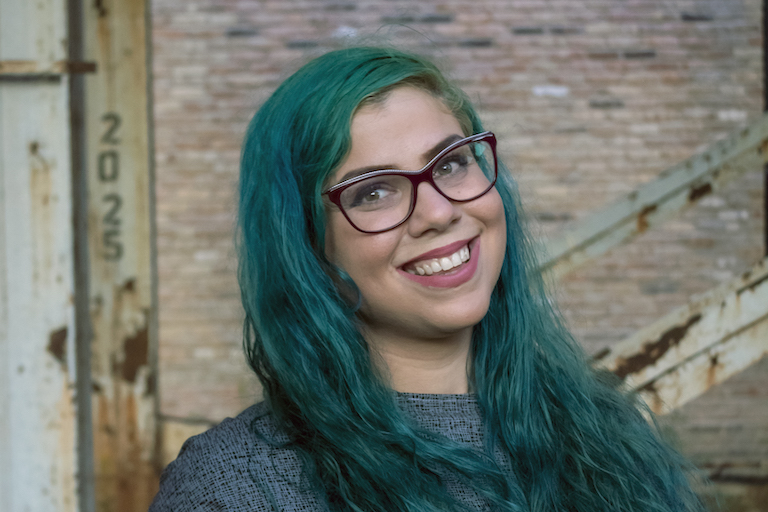At 16, Ava Francesca Battocchio was writing their list of dream schools, secure in the idea that college was the ticket out of a rural Connecticut town. But then, Battocchio’s father got terminally ill, changing the trajectory. Battocchio became a caretaker alongside their mother, and barely graduated from high school.
Without solid grades and finances, Battocchio went to work full-time. They tried going to community college, but dropped out, unable to afford the tuition. Battocchio worked retail until finishing an associate degree at the age of 29. At 31, Battocchio started their bachelor’s. They graduated at 34 with a dual bachelor’s and master’s, and a vision for research as a doctoral student in information and media at MSU.
“When people encounter repeated setbacks, they have to be innovative to work within the system,” Battocchio said. “I often find a lot of interesting ways that folks problem-solve from working in communities that have faced challenges or changes to their structure.”
Battocchio currently bases their research in deindustrialized communities in the upper Midwest. ComArtSci, they said, was an ideal fit because of its interdisciplinary approach, as well as because of the newly founded Rural Computing Research Consortium.
“Having this interdisciplinary and collaborative space with world-class scholars creates an environment where it’s safe to have innovative or ‘out-there’ ideas,” Battocchio said. “I love being in this space to challenge assumptions and learn new ways to engage.”
Battocchio’s research includes the study of civic infrastructure, information accessibility and media ecology. As an offshoot, Battocchio examines community Facebook groups in small towns, and how those groups look as sources of information when journalism resources are scarce. Overlaying all their research, Battocchio said, is how a person’s concept of ‘home’ and changing community structures shape social identity—both individual and collective.
Battocchio said it’s easy to assume that everyone in every community can go online and get information, particularly with broadband and other forms of connectivity.
“But it’s important, too, to understand what the hybrid communication experience looks like,” they said. “A country bar is a good example. There’s the guy talking about what he sees on Facebook and comparing it with what another guy sees in the paper and what the bartender sees on TV. Then they all go home and talk about it for another point of comparison.”
Battocchio hopes collaborating and sharing ideas with scholars within the consortium will further inform their research into media ecosystems and digital technology.
“It’s important to think about rural communities,” Battocchio said. “We’re seeing how these communities vote in certain ways, and how they shape public health through their views on Covid-19. My work is about trying to understand different perspectives by understanding what information sharing looks like in these areas.”
Learn more about the research being done at the consortium.
By Ann Kammerer
